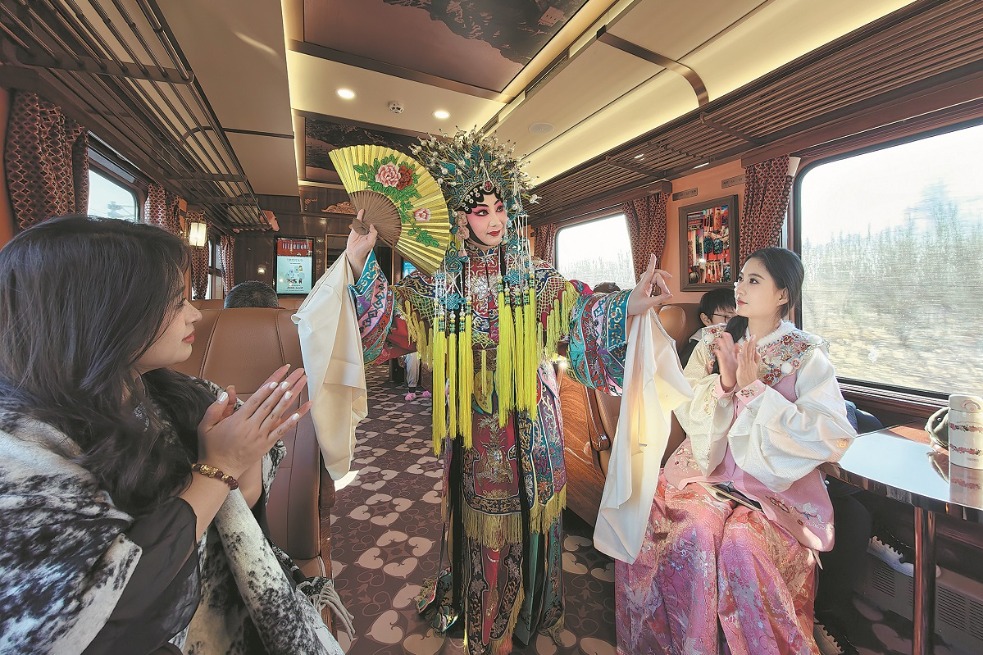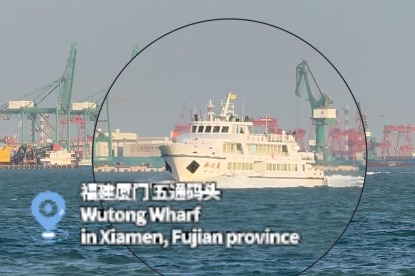The state of play with African studies

Scholars at the forefront of drawing partners together Sun Xiaomeng
In 2000, Sino-African relations entered a new phase of comprehensive upgrading and China began to foster a mature African policy. The establishment of the Forum on China-Africa Cooperation has provided a mechanism for the development of relations. As China's presence in Africa has grown, opportunities have been created for Chinese Africanists, and African studies in China have flourished.
African studies can be defined as the systematic, scientific study of Africa, its people, institutions, cultures and history. Western academia has enjoyed a long history of African studies dating back to the 19th century, the goal essentially being to facilitate exploitation of the continent. It has become a well-established multi-disciplinary research field covering a wide range of subjects, including anthropology, economics, geography, history, linguistics, political science and sociology.
African studies in China were closely linked with the development of Africa's situation, China's development and diplomacy, and Sino-African relations. Mechanisms have been provided to boost the role of Chinese Africanists. In 2006, the Chinese authorities announced 10 think tanks. In 2009, the 20+20 cooperation plan for Chinese and African institutions of higher education was launched to improve the cooperation mechanism between the two sides.
And in March 2010, the China-Africa Joint Research and Exchange Program was unveiled. The program, aimed at expanding people-to-people and cultural exchanges, enables scholars and think tanks to increase exchanges and cooperation, share development experience and provide intellectual support for improving cooperation policies.
In general, Chinese Africanists perform three overlapping roles - academic, advisory and advocacy - and most of them are from university-affiliated centers and institutions. In recent years, more emphasis has been put on describing, explaining, predicting and evaluating political evolution in the continent. African studies in China are limited in diversity and countries and regions covered, and the needs of African studies are far from met. This, to a certain extent, restricts the depth and breadth of Sino-African relations.
Few Africanists focus on case studies or country studies, and it is time to make such studies more detailed and narrower.
It should be clear that African studies in China are facing challenges on their long and winding journey. China's fundamental academic research pales in comparison.
There is also a gap between theoretical research and the reality of Africa. Specialists sometimes fail to provide proper policy advice and instructions to the government. Fundamental theoretical research in African studies in China lags behind policy research, and the weak theoretical foundation can even result in shallow policies.
Cooperation needs to be strengthened among colleges and between academia and government authorities to create a multi-disciplinary African research team that engages in coordinated fundamental studies that meet national strategic needs.
A proper understanding of Africa cannot be achieved without knowledge of its languages, cultures and history. Relevant studies are important for forging mutual respect and understanding, as well as building an equal partnership between China and Africa, which can eliminate misunderstandings caused by cultural and language differences. Because of the language barrier and lack of involvement in international academia, African studies in China are comparatively alien to Africanists outside China. Few Chinese Africanists have published in English, or participate in international public debates.

In terms of talent training, China should focus on producing well-rounded Africa experts. The experts in foreign countries have two distinct features: they are proficient in local languages and have lived in localities for a long time; they keep in close contact with their research subjects. For instance, some of the American Africa experts worked in Africa in the Peace Corps in their early years, and visit Africa every one to two years. By contrast, China still has a long way to go, and there are urgent issues to tackle, including how to teach the students proficient in African languages research methodology in anthropology and sociology, and to train students of African history and international relations in basic language skills.
It is also necessary to provide opportunities for the African elite to understand China's social progress, cultural values and development models and to deepen their bonds with China, which will strengthen mutual understanding and friendship.
Since Africa was colonized by the West it has seen the world, itself and its relationship with the world from a two-dimensional perspective of "Africa and Europe" and "African culture and Western culture". Placed in a disadvantaged position, Africans had no other choice but Western culture. Although Afro-European cultural contact was not voluntary, with Africa on the receiving end, its impact on African society has been profound and enduring. The linguistic bonds between the West and Africa encapsulate the West's broader relationship with African countries.
On the other hand, China and Africa are both among the cradles of human civilization and have splendid cultural heritage. African cultures and traditional values, in essence, are close to their Chinese counterparts in that they emphasize collectivism, political arrangements by consensus. This provides the basis for mutual understanding between the two civilizations.
African studies in China are essential to the healthy and comprehensive development of China-Africa relations and could pave the way for future cooperation. It is a promising field, but there is space for a lot more effort and collaboration.
The author is associate professor and vice-dean of the School of Asian and African Studies, Beijing Foreign Studies University; and senior associate fellow of St Antony's College, University of Oxford. The views do not necessarily reflect those of China Daily.
(China Daily Africa Weekly 11/29/2013 page9)
Today's Top News
- Lai's 'separatist fallacy' speech rightly slammed
- Xi's message for New Year widely lauded
- Swiss bar fire kills around 40, injures more than 110
- New Year's address inspiring for all
- Xi congratulates Science and Technology Daily on its 40th anniversary
- Xi congratulates Guy Parmelin on assuming Swiss presidency






























